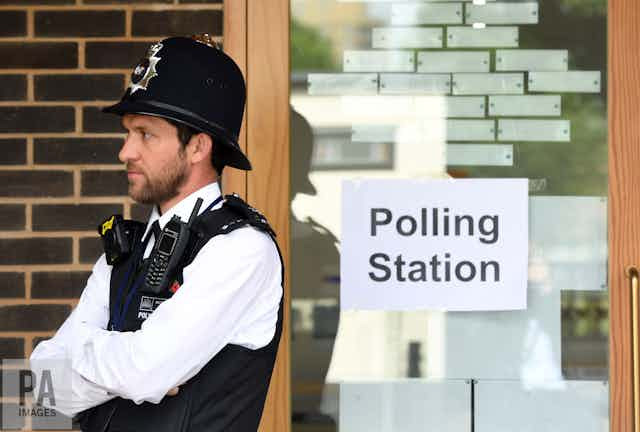Theresa May’s first words as prime minister on the steps of Downing Street signalled that she would put “fighting against burning injustice” at the heart of her political agenda. Highlighting inequalities across the lines of ethnicity, class, gender and age, she set out her “mission to make Britain a country that works for everyone”.
These bold ambitions have been put under scrutiny as details have emerged about the way May’s government has treated people who moved to the UK from the Caribbean between the 1940s and 1970s. The Home Office didn’t keep records for many of those members of the so-called “Windrush generation” and, in 2010, their landing cards were destroyed by the Home Office. Changes to the law subsequently required to them have this paperwork to work, receive benefits, access healthcare and many have been left feeling unwanted and concerned about their futures in the UK. Bureaucracy and paperwork, boring as it may sound, can make a fundamental difference to our lives.
Now some of these same people may also be prompted for paperwork when wanting to exercise their democratic rights. For the first time in British elections, citizens will be asked to prove their identity at the polling station before being able to vote in the 2018 local elections in England. For now, it’s just a pilot and only five authorities will take part. But the government has set a trajectory that will see it steam ahead with expanding this policy. Its 2017 election manifesto vowed to “legislate to ensure that a form of identification must be presented before voting”.
We’ll be monitoring the pilots to see if it does end up limiting the rights of certain groups.
A worthwhile exercise?
Rather than stamping out “bogus immigrants” the aim of introducing voter ID is to stamp out electoral fraud. Electoral fraud, however, isn’t really a problem at polling stations. Alongside Alistair Clark, we found in a recent study of the 2015 general election, that less than 1% of the officials working in polling stations were concerned that there might have been a problem with fraud in their location. Where there were concerns, polling officials stressed that this was often due to a lack of understanding of the voter, rather than any deliberate attempt to manipulate the process. For example, one Lithuanian citizen was confused that she couldn’t vote in the general election, even though she could in local and European elections. Can you blame her?

Instead, a far greater problem was people asking to vote who were not on the register, presumably because they were not registered or had gone to wrong polling station. Over two thirds of polling stations turned away at least one citizen from voting because their name was not on the electoral register. In other words, paperwork and bureaucracy can deny people their democratic right.
The evidence is that voter identification can be another bureaucratic barrier to the exercise of the right to vote. The effect varies a lot. It depends on how tough the identification requirements are, how it is administered, the level education about the paperwork requirements and whether activist groups launch counter mobilisation efforts to get those who might be left out to the polling stations.
The simple truth, however, is that the more bureaucratic you make the voting process, the less likely that people vote. Voter ID reforms can systematically disadvantage those groups who are less likely to have whatever form of ID is required.
Fact checking the government’s response
The minister in charge of this matter and the Cabinet Office have responded that it is “simply not the case” that voter ID could prevent eligible people from voting. After all, the system works in Northern Ireland where it was rolled out 15 years ago. And ID is required to “collect a parcel from the post office, rent a car, or travel abroad”. So why not voting?
The Northern Ireland analogy is a red herring, however. In Northern Ireland citizens are given free electoral identity cards to ensure that people are not turned away from the polls without casting their vote. That was the system that the Electoral Commission recommended for Britain. The government said this would be too great a “financial and administrative burden”. There have also not been any studies to test how many would-be voters have been turned away at polling stations in Northern Ireland.
Although paperwork is needed for other tasks – and as exciting as collecting a parcel is from the post office – they’re not as time sensitive as voting. Voting hours on polling are restricted. There is no voting the next day. So being turned away for forgetting your ID or not having the right ID is much more likely to mean game over for a voter.
Since 2010, the government has placed the burden of proving voter identity on the citizen. The first step in registering to vote is providing your national insurance number . This would then be checked against a government database before eligible citizens would be added. A combination of voter registration drives from civil society groups, other simultaneous changes and high profile electoral contests have kept registration rates temporarily high. But under those reforms, registration rates among the elderly rose, registration rates among the young dropped.
The government has been accused of being slow to respond to evidence as cases emerged with the Windrush row. Evidence will be readily available with the pilots. The Electoral Commission is under a statutory requirement to evaluate the pilots and those assessments alongside other research must be carefully listened to.
Alistair Clark and I also have a survey in the field in non-pilot areas that will produce more evidence. Whichever direction this is in, May must be prepared to change course if citizens are denied their right to vote to ensure that the UK really does have a democracy that works for everyone.

